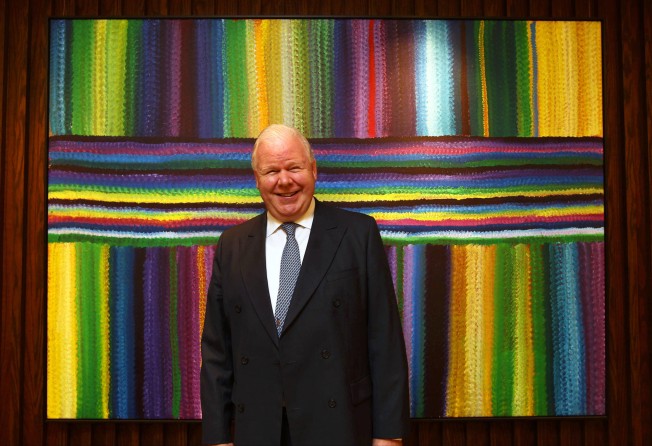ANZ eyes Asian assets to expand in region
Bank's chief executive is on the acquisition trail, looking to buy assets with strong ties to Asia as lender sees the region as key growth driver

The Australia and New Zealand Banking Group (ANZ) is looking to buy assets with strong ties to Asia to expand its business on the continent and become a super-regional bank, but its chief executive says the lender will be cautious about acquisitions going forward.
ANZ is the fourth major player in the region after HSBC, Citi and Standard Chartered.
Michael Smith, HSBC's former chief executive in the Asia-Pacific region who got the top job at ANZ in 2007, said they will patiently wait for any Western bank to unload their Asian assets. He believes robust growth in Asia will contribute 25-30 per cent to bank earnings by 2017, from 20 per cent at this time.
"I still believe that a number of them will sell good quality assets," Smith told the South China Morning Post. Asian assets may be the last thing they seek to sell, according to Smith, because the Asian assets will be an important source of revenue for the future. "But they may have no choice, because they have to focus very much on getting their domestic operations [right]."
The Asian financial system could be larger than the US and Europe combined by 2030 based on continuing reform and deregulation in the region, a recent research report from the bank said. Smith said they expected organic business growth in the region but would be watchful if Western owners are keen to cash in.
The latest sale of Asian assets came from Societe Generale, France's second-largest bank, which sold its private banking arm in Singapore and Hong Kong to DBS for US$220 million this month. That followed the decision by Bank of America to sell its Asia and non-US private banking business to Julius Baer for 860 million Swiss francs (HK$7.55 billion) last year and the Dutch ING Group handing over its Asian private banking operations to Singapore's Oversea-Chinese Banking Corp for US$1.5 billion in 2009.
Smith said ANZ had evaluated the assets from Societe Generale but thought they would not work for the bank due to their "European-centric" client base.
"That really doesn't play to our strengths," he said.
At this time, ANZ is seeking to sell its holdings in ANZ Royal Bank in Cambodia, a joint venture with the Royal Group of Companies. This follows the sale of its stake in Vietnam's Sacombank last year. ANZ said it would strengthen its footprint in Thailand and Myanmar where it only has representative offices.
ANZ is looking closely at China's reforms of its financial markets, including the opening up of the banking sector and deregulation of interest rates.
ANZ has eight outlets on the mainland and received approval to set up a sub-branch in the Shanghai free-trade zone. It holds a 20 per cent of stake in Shanghai Rural Commercial Bank and 17.6 per cent in the Bank of Tianjin. The bank wants to grow on the mainland, in terms of both branches and staff numbers, but no figures were available.
The 42 locally-incorporated foreign banks on the mainland only have 1.82 per cent of total assets in the sector as of the end of 2012, according to EY's report in January. The Big Four state-owned banks held more than 40 per cent.
"Major Chinese banks have maximum advantage in the highly-regulated market," said Smith.
"As de-regulation takes place, that advantage [of major players] will be diluted a little bit, because we will be able to compete on equal terms. That will benefit us."